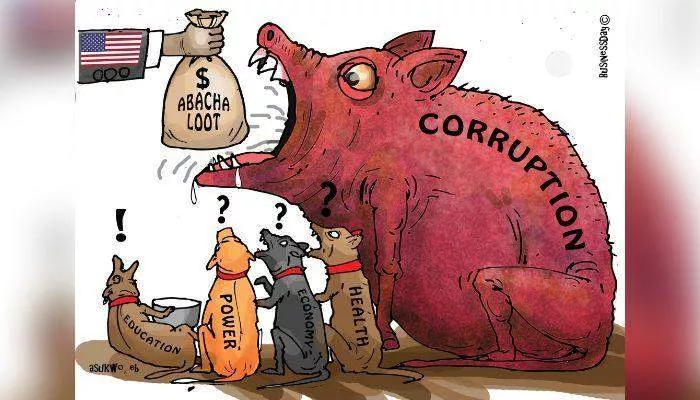
Since the return to civil rule in 1999, cases of misgovernance and corruption have characterised successive administrations in Nigeria.
This has played out to the point that even the creation of the Economic and Financial Crime Commission (EFCC) and the Independent Corrupt Practices and other related Offences Commission (ICPC) has not been able to tame the increasing cases of corruption in the country.
The 2022 corruption perception index showed that Nigeria was still one of the most corrupt countries in the world.
One of the focal points of Muhammadu Buhari's administration was to tackle corruption and graft; however, many Nigerians say after his stay in office that the administration failed in its anti-graft war.
Buhari said he was baffled by the high-level corruption still prevalent in the country, despite efforts made by his administration to fight the malaise few days before leaving office.
Today, many people believe that corruption has hindered the development of Nigeria. The media is awash with reports of high profile corruption cases, many of which were eventually swept under the carpet.
The nation's public sector is seen by many as a cesspool of corruption.
For instance, the 9th National Assembly (NASS) and the ones before it were unable to resolve some of the biggest corruption cases they investigated.
There have been clear instances of cover-ups and lack of political will to bring perpetrators of many of the corruption cases to book, both by the EFCC and the ICPC.
The situation appears even worse these days as the law appears to have failed in punishing those who steal public funds or engage in other untoward activities to enrich themselves.
"If you are talking about corruption in the real sense, you can also talk about corruption at the EFCC, and there have been stories, all kinds of allegations from lawyers, from different people about the high-handed and corrupt practices at the EFCC over the years, same thing when you go to the ICPC; ICPC is a bit on the quiet side but because corruption is an endemic situation in Nigeria - it's not impossible to find high level of corruption at the ICPC," Achike Chude, public affairs commentator, told BusinessDay.
According to him, institutions of government saddled with the responsibilities of fighting corruption in Nigeria cannot perform optimally because they are being violated by the people running the same institutions.
He said further that the primary reason why corruption continues to be on the rise in Nigeria is because successive administrations have not been able to isolate and immunize the EFCC and the ICPC from the control and influence of politicians.
"Essentially because the politicians are running the show, politicians are in charge and you have not built institutions," he said.
Despite a number of reforms embarked upon by the current administration, corruption in the system seems to overshadow the gains.
Eight months after the inauguration of the Bola Tinubu administration, Nigerians have continued to reel under the pains of poorly-executed policies.
"That gives you an idea of the nature of political parties, because in my view political parties are multi-purpose vehicles for corruption and the interest of the political class," Chude said.
According to him, the political parties, especially those in power since 1999, have not lived up to expectations with regard to the fight against corruption.
However, speaking to the recent case of abuse of office and privileges by suspended Minister of Humanitarian Affairs and Poverty Alleviation, Betta Edu, Chude said that the government can beat its chest over how the case was managed, but that the present administration is not immune to the allegation since she was nominated by the President.
"The reality is that when the government nominated the ministers, there were reports that over half of them have been involved in corruption matters with the EFCC; the President did not mind that, he went ahead to submit their names to the National Assembly, and the National Assembly did not care about that too - they went ahead to confirm them. So, what kind of security report did the DSS give about these people?" he said.
According to Chude, the recent corruption case is a pointer that the institutions of the state have broken down, and have failed in their primary responsibilities to prevent corruption in the polity.
"That is why cases of corruption have continued," Chude said.
Badru Saleh, another Lagos-based public affairs commentator, told BusinessDay that what the minister of Humanitarian Affairs did was something that has been the norm in most of the ministries.
"Betta Edu's case is just a case of dog eating dog. She remains innocent until proven otherwise. She ought to have sought the opinion of legal experts upon her assumption of office on how to handle financial issues without breaching the constitution and gazette," Saleh said.
He further said that those who plotted against Edu are the loyalists and beneficiaries of the immediate past Humanitarian minister and the suspended director general (DG).
"I think what should be of major concern to us is the ease at which confidential government memos are being circulated on social media for cheap gain.
"I respect the decision of Mr. President by suspending her because some retards are beginning to make it a North vs South issue. May Nigeria succeed," Saleh concludes.
Nigeria still under the thumb of criminals
December 28, 2023 was a day Kenneth Uzoenyi will never forget in a hurry.
The auto dealer, who hitherto, was lamenting poor sales, amid the huge financial burden of burying his father this January ending, had a ninth-hour miracle three days to the end of 2023, when two youngsters entered his auto shop and bought two Mercedes ML 350, without much price bidding.
Of course, Uzoenyi, who is popularly called Kenny Container, smiled to the bank, amid huge profit from selling the two sleek Mercedes SUVs.
But, the auto dealer also confessed to not being totally happy because the two customers were in their early 20s and had made the money through fast means.
"Initially, I didn't take them seriously based on their rough looks and age. I was scared of selling when they were eager to transfer my money. I sold the cars, but I would have preferred more mature and responsible looking customers. What if EFCC comes tomorrow," he expressed his fears.
Yet, real estate companies and agents in highbrow areas across the country, are often besieged by some unusual clients- 'youngsters' - requesting to be shown properties to buy.
One that almost got Olakunle Onitiri, a real estate agent in Ikate, Lekki, Lagos, into trouble was the incident in October 2023, where a 24-year old man, requested to double the price of a duplex he saw and loved in one of the luxury estates in Ajah, Lagos.
"I was just finishing my monthly praying and fasting session when this young man came. I became suspicious when he called his bank officer to do the transfer of over N200, 000, 000 for a duplex far less than that price. I delayed the purchase and later discovered that the young man just finished his NYSC, and hailed from a very poor background in Ibadan. I asked after his source of income, he simply said crypto business. He lied, he is a fraudster, including his friends in three flashy cars," Onitiri said.
Though he missed out on a huge commission, Onitiri confessed that he was cautious because many agents have landed in the EFCC net for aiding or being regarded as accomplices in fraud cases such as this.
As well, some concerned hotel staff members are worried over the length of time and amount spent by young guests in recent times.
Margaret Ekuma, senior front desk supervisor in a three-star hotel in Lagos, lamented that some youngsters stay as long as three weeks in their hotel, changing from one suite to the other, as well as changing their guests who join them to run bills.
"These small boys stay in expensive rooms, drink expensive wines like Champagne, and host many friends at the same time. Our hotel is not cheap and some of them run bills totaling over N7,000,000 (seven million) during their stay and they pay. No responsible person does that and nobody can stop them because they are above 18 years," she decried.
There are many cases of such reckless spending by very young people across the country, meaning that the youths somehow, have access to huge money to spend.
These youngsters or better still, fraudsters are a reflection of the society today, where nobody cares about how people make money and all that matters is living a flashy life.
But, how do they make the money, at a very young age and in very large sums?
According to Stanley Dumari-Dickson, a criminologist and forensic expert, it is fraud, fraud and fraud.
"It used to be money rituals, Yahoo, kidnapping, robbery and now Yahoo Plus. But all point to fraud and fast money because that is the ultimate reason for engaging in any of these crimes," he explained.
The criminologist noted further that it is not all because of youth unemployment as even illiterates are making money from vulnerable educated people through Yahoo Plus.
"We are experiencing the worst Yahoo frauds by young people today. The challenge in fighting them is that unlike in the 80s where you can raid cybercafé to catch suspected yahoo fraudsters, these guys stay at home to make their money, even in their father's house, before buying their own."
But Fred Amoda, a product and technology strategist with a tier one bank, explained that the proliferation of learning has made the internet a playground for fraudsters.
He noted that the 'boys' are making fast money by breaking into people's passwords and using them to steal their money.
"Anybody who loses a phone today without blocking his accounts and lines fast enough will definitely lose money to these online fraudsters who have fast fingers. They can break into anything and make money by doing so," he explained.
Explaining further why such fraud is happening unchecked, Amoda said, "You don't need a degree to be good with the internet. The only thing you need is skill and most online fraudsters know this, they are ahead of you, even ahead of financial institutions and they are updating their fraudulent skills every day.
"As a bank, we keep updating our security; the fraudsters keep updating skills on breaking through them as well."
While many have fast fingers today to defraud others and make fast money, a few youth have undertaken other harder means especially kidnapping and arm robbery.
Dumari-Dickson noted that arm robbery is still paying big time for some people, all they need is collaborators.
"Robbery is all about collaboration and some youngsters who prefer to carry guns to internet fraud, only need insiders in the bank, in shopping malls and any of their targets to succeed.
"Some bank robberies in recent times have been successful because of the collaboration. So robbery gives these youngsters fast money," he said.
In the case of kidnapping, the stakes and risks, according to him, are higher, yet these youngsters dare to make money too with a few being caught.
A lot are also bringing diabolical perspectives to fraud, especially Yahoo Plus, which is a combination of what is comprehensible and incomprehensible in the fraud business.
"There are people you least expect to fall for these 'Yahoo Boys', but they do so because of the diabolical component of their evil craft. It is not necessarily greed, but a kind of force the victims cannot comprehend until they are defrauded," Dumari-Dickson concluded.
Enters Tinubu, high optimism
There was a level of optimism when the Bola Tinubu administration promised to prioritise the fight against corruption which was one of his eight-point agenda.
It came like a breath of fresh after several high ranking officials of the Buhari's administration were fingered in corruption cases at the expiration of administration.
For many Nigerians, President Bola Tinubu's eight-point agenda, pointing towards economic re-engineering and radical overhaul of state's policies appears heart-warming.
The agenda, broad-based and ambitious, especially in the area of fighting corruption, is raising hopes and warming feet that had become cold in the wake of the removal of subsidy on petroleum products.
The administration came with radical reforms like removing fuel subsidy and floating of the naira.
Part of the anti-graft war was the removal of Central Bank Governor, Godwin Emefiele and other top officials accused of mismanaging the economy.
Tinubu has outlined plans to expand a scheme to provide targeted cash transfers to poor and vulnerable households.
However, Nigerians are struggling with a tripling of fuel prices and higher food costs.
But he insists the negative impacts will be temporary and has repeated calls for patience, saying the move will benefit the country in the long run and attract more foreign investment to Africa's largest economy.
The President's cabinet has set out to work in all sectors, part of which is to create jobs and revitalise the economy.
Despite the reforms of the Tinubu's administration and move to cut public spending, several high profile government officials are still living large and moving across town with long convoys.
Many Nigerians say this is now the perfect opportunity for Tinubu to fulfil his campaign promises and curb government excesses like the outrageous allowances given to lawmakers, selling off several planes in the presidential fleet, and pruning down wasteful government expenditures and inflated budgets that are not grounded in reality.
Although the President last week, in a major cost-cutting move, has approved a directive to slash the size of official delegations for foreign and domestic trips by up to 60 percent.
Presidential spokesman Ajuri Ngelale had disclosed this to State House correspondents.
But many opposition politicians and analysts said the President can do more.
Peter Obi, the presidential candidate of the Labour Party, said that Nigerians require a 60percent reduction in governance expenses rather than fewer individuals in travel entourage.
He said: "The just announced 60percent cut in the size of federal official entourages on travel is one positive step towards the reduction of the cost of governance and a way of halting wastage.
"But this measure is just scratching the surface, as it is limited in scope and can only lead to a very negligible saving. We are yet to be told how much savings this will amount to.
"While this modest step may be somewhat commendable, what is desirable should be both a 60percent reduction in federal official overseas trips as well as a 60percent reduction in the size of delegations.
In recent weeks, cases of alleged thieving and affluent lifestyle by government officials are on the rise and have raised questions about the administration's corruption war.
But President Tinubu appears to have stood firm, removing some prominent officials from government agencies for alleged corruption, including Betta Edu, the Humanitarian Affairs Minister.
Three prominent officials suspended by Tinubu
First among the officials removed from office by the President was the Chairman of the Economic and Financial Crimes Commission, AbdulRasheed Bawa.
A statement from the Presidency had disclosed that the suspension was meant to ensure investigations into weighty allegations of abuse of office against the suspended former EFCC chairman.
Former President Muhammadu Buhari had in February 2021 appointed Bawa as the EFCC chairman following the removal of his predecessor, Ibrahim Magu, over allegations of corruption.
A few years after his appointment, Bawa faced strong opposition from non-governmental organisations who called for his removal.
Also, in February, the Kogi State Government, Yahaya Bello, accused the EFCC led by Bawa of being a "pawn in the hands of political opponents in a bid to satisfy certain political interests."
Similarly, a civil society organisation, Coalition of Concerned Citizens accused Bawa of abuse of office, and corruption among others.
Halima Shehu suspended
President Bola Tinubu on the second day of the year approved the suspension of Halima Shehu as the Chief Executive Officer (CEO) and the National Coordinator of the National Social Investment Programme Agency (NSIPA).
Shehu was appointed by President Tinubu in October 2023, and her appointment was confirmed by the Senate on October 18, 2023.
She worked as the National Coordinator of the Conditional Cash Transfer Programme, where she used her banking and career expertise to see to the digitalisation of the programme.
The former banker worked at the Federal Ministry of Humanitarian Affairs, Disaster Management and Social Development, from 2017 to 2022.
President suspends Betta Edu
President Bola Tinubu also, last week, suspended Betta Edu, the Humanitarian minister, over the N585.2 million corruption scandal last week.
He also directed the Economic and Financial Crimes Commission (EFCC) to conduct a thorough investigation into all aspects of the financial transactions involving the federal ministry of Humanitarian Affairs.
Edu was accused of financial infractions bordering on the approval of payment of about N585 million into private accounts of a civil servant, who is said to be the accountant in charge of grants for vulnerable Nigerians in Akwa Ibom and other states.
Tinubu's decision to remove and investigate these top officials has endeared him to many Nigerians, who are hoping that he sustains the tempo and fights graft to send a message to corrupt officials in government.
Temitope Musowo, public policy expert said the President has shown that he is serious with his fight against corruption despite criticism so far.
He said it was imperative for him to listen to the yearning of Nigerians.
"I want to say that the Tinubu did well by removing those officials found wanting. It sends a strong message to other cabinet members that such would not be tolerated and you can't behave anyhow.
"He promised to fight corruption in his eight-point agenda and we are all watching. Corruption is endemic in Nigeria and part of the problem is because people are not prosecuted and punished.
"Look at what happened in the last administration, cabinet members behaving the way they liked," he said.

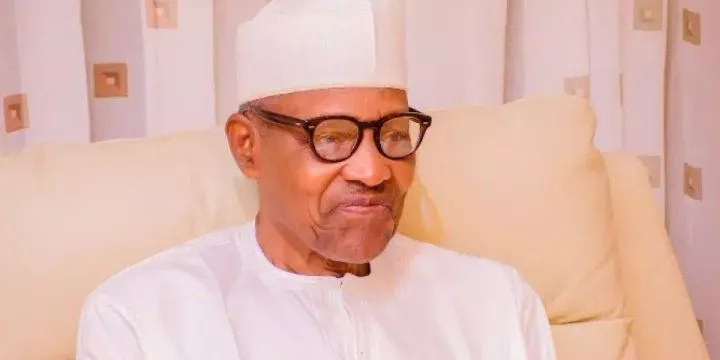

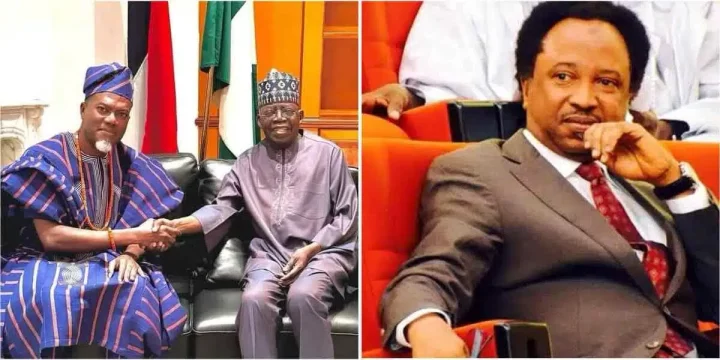
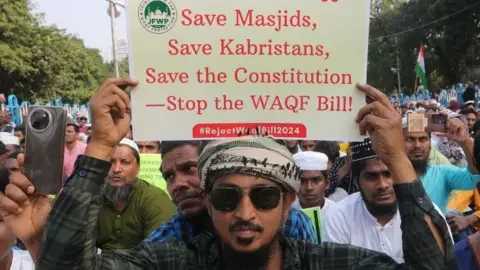

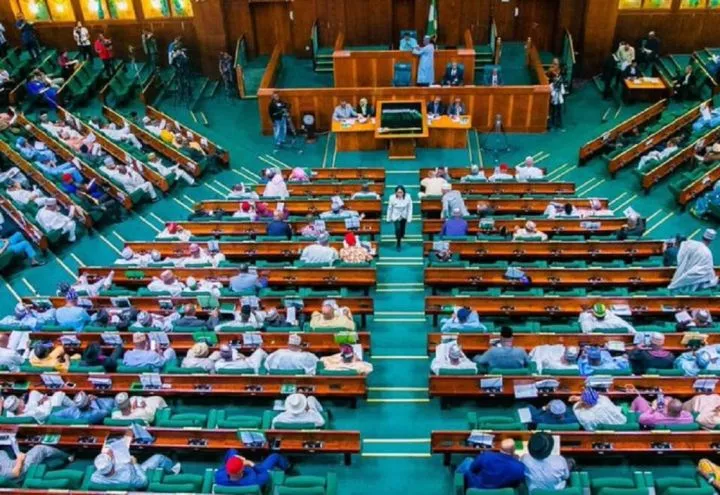


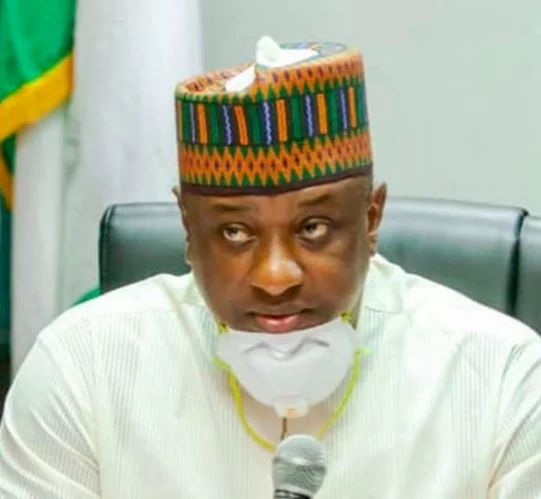






Comments